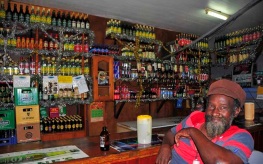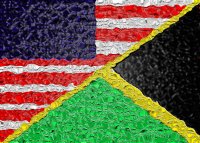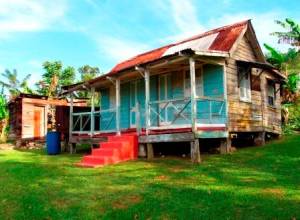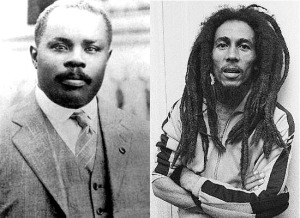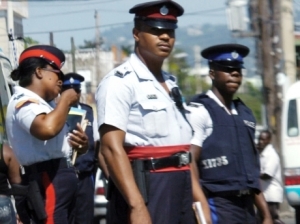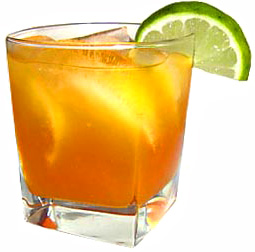 The orange and white gigantic metal bird stood motionless as it was fed people and baggage. The people in a stream through a rubber extension attached to its side, the baggage through a ramp leading up into its belly. Its fellows hummed and droned nearby ascending the heavens one at a time, as others dropped from the sky to replace them in a roaring, hissing cacophony.
The orange and white gigantic metal bird stood motionless as it was fed people and baggage. The people in a stream through a rubber extension attached to its side, the baggage through a ramp leading up into its belly. Its fellows hummed and droned nearby ascending the heavens one at a time, as others dropped from the sky to replace them in a roaring, hissing cacophony.
He sat in his window seat watching the stewardesses, faces frozen in plastic smile, conducting the white tourists and mostly expatriate Jamaicans to their seats. At last all the passengers were settled and the pretty, glorified waitresses in multi-colored skirts flitted about making sure seat belts were fastened, seat backs straightened. Next, they stood equally spaced in the aisle and went through the life-saving equipment procedures in precise, dance-like unison to the droning, lilt of the head stewardess’s voice. And then the mammoth metal bird taxied down the tarmac.
The passengers fell silent as they wheeled into place. Soon the empty hangars were whipping past. The broad wings shook. They gripped the armrests as the wheels lost contact with the ground. Flaps up, they broke for the sky tilted way, way back. The quiltwork of dollhouses that was New York City tilted away at a crazy angle.
“Ping!” and the fasten seatbelts signs went off. The slender stewardesses suddenly appeared with trays filled with plastic glasses of a pink liquid.
“Rum Bamboozle, m’am? Rum bamboozle, sir? Would you like a rum bamboozle?” they sing-songed. The city vanished beneath them, as the plane straightened. They were soon enveloped in cloud mist. They dipped sharply, and he felt a sudden cold splash on his thigh.
“Oops. I’m so sorry!” said the passenger next to him, sopping at his lap with a red napkin.
“God!” he thought. She’s a sweetheart. But he didn’t have the heart. He wondered, though, if maybe, just maybe, this long-limbed angel hadn’t spilled her drink on purpose. True, the plane had dipped, but. . .
“Don’t worry. It’s alright,” he said eking out a smile.
“Is this your first time flying to Jamaica?” she asked. Perhaps she just felt obligated to make small talk because of the accident, he thought. “Looking for things to do in Jamaica?”
“No.” he said, and left it at that. But in the silence he felt that she felt uncomfortable. Perhaps she had wanted small talk, but not that small. What the hell, he thought. Might as well continue.
“Is this your first time to Jamaica?” he said.
“No.” she said.
Now in the ensuing silence he felt uncomfortable, ignored, as if she should have said more. He crossed his legs self-consciously. She scratched at her brow, in turn. Without realizing it, he found himself asking,
“Do you live in America or Jamaica?”
“Both really. Well, not really. I live in New York, but every chance I get, back home I a go,” that last said in patois as if to emphasize her point. He smiled. She smiled.
Again there was silence. He shifted his hands. She reached for a magazine. It was like they were invisibly connected. She had recognized his existence. He, in turn, had recognized hers. Strange, but they could have sat silent and alone for the entire flight. Now, though, now that they had talked, they couldn’t be alone. They were together. And what is more, she was woman, he was man. Had the mating dance began?
The big jet soared over a field of clouds, dotted with wispy top heavy mountains. He sipped his rum bamboozle. She smiled and sipped at hers. Together, they soared above the sweeping, field of blue and white and silence. . .
